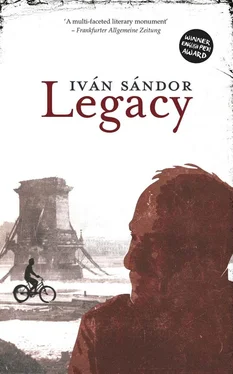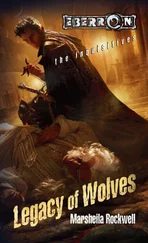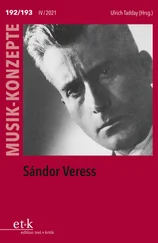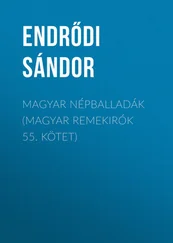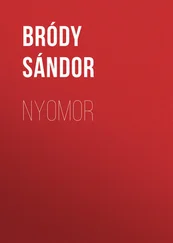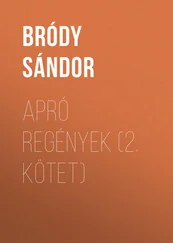Lutz reads the notes.
One proponent of a theory of races in the nineteenth century had been the anthropologist Vacher de Lapouge. He argued that Europe would perish if the long-headed (or dolichocephalic) Germanic races were to be squeezed out by intruding short-headed (brachycephalic) non-Germanic races. He had written that in the twentieth century millions would destroy each other because of just fractional differences in their cephalic index. According to Gobineau the Aryan races had created European civilization; development always came to a halt when Aryan blood became exhausted. Racial purity was a guarantee of a successful history, which was why the Aryan race had a historic mission — a Germanic world empire. That was what Rosenberg propounded and what Hitler wanted to accomplish. The first step was the crushing of the anti-Germanic Judaic world conspiracy, the annihilation of the Jewish race. Race theory under pinned genocide. That is what had prepared the ground for the Wannsee Conference the previous month. The succeeding steps were slave status for the enemies of the Nordic — Germanic world empire and varying degrees of assimilation of non-hostiles.
Lutz recalls how surprised he had been by the unexpected transfer of his young colleague in the legation. Wavy fair hair, thick fair eyebrows, blue eyes, a slightly stooping posture. Lutz also recalls making enquiries about the young man in Zürich in 1942. All he was told was that he was no longer in the diplomatic service but had returned to his scientific career. Of his own accord? Lutz had asked. You will have to ask Dr Heinrich Rothmund, head of the Police Division of the Federal Department of Justice and Police, for the answer to that.
On the evidence of his diary, in February 1942, when he received the envelope, he noted that he should speak to no one about it, not even Gertrud. When he first heard about the Wannsee Conference he wrote in his diary: how long was I blind, how long have all of us been blind? The entry for 15 November 1944:
Today we again went out to visit the Óbuda Brickworks. I managed to place a lot of people under protection. It has been certain for quite some time that Hitler is going to lose the war and his plan for a German world empire cannot be realized. What if it had been?
There is a knock on the door. Lutz places both envelope and diary back in the lower desk drawer.
I would never have believed that I would be able to survive what happened to us, Mother said once, but I would definitely not have been able to deal with what fell to Gizi’s lot, and yet I carried on without searching for words to endorse what Mother had said, that she covered the route to Hegyeshalom not on foot but by military car. The look on Gizi’s face when she talked about it was as if she were relating a fairy-tale, although I would say it was rather that she looked like someone who knew full well that what she was speaking about could only happen in a fairy-tale.
In the houses of the international ghetto those in possession of a safe-conduct letter are being lined up, Gizi tells Carl Lutz, and then taken off either to the main ghetto or to the bank of the Danube. Darling, you ought to make a telephone call to Major General Sédey, Gertrud says. Lutz does not telephone but summons his chauffeur. Charles, if you don’t mind, there is one more trip to make after all, and he puts on his fur coat, as do Gertrud and Gizi, while the chauffeur buckles on a holster and pistol.
Coming in from Buda the black Packard moves at walking pace over the Széchenyi Chain Bridge. People with haversacks or suitcases in their hands are crossing from the Pest side in among tanks, helmeted troops of the Waffen-SS and troops of the Hungarian Army. The Packard is stopped in the middle of the bridge by two men with Arrow Cross armbands. Charles indicates the Swiss flag on the car, and Carl Lutz has to produce his diplomatic pass as do Gertrud and Gizi. A bombing attack had raked the upper storeys of the Gresham Palace building on the Pest bank overlooking the Chain Bridge, the windows of the Academy of Sciences had been smashed. There are six tanks by the Parliament building. Another check. One of the machine-gunners cannot be more than fourteen years old. What a nice face he has, says Gertrud to Gizi on the rear seat. The youngster is wearing an officer’s cap cocked over one ear. He demands the papers with his gun trained on Carl Lutz. Lutz asks him if he speaks German. He does. Where did he learn it? At cadet school in Kőszeg on the frontier with Austria, but anyway his parents had engaged a Fraülein as governess. Lutz asks him what is the point of the war. We are fighting for the homeland, the boy says. They leave Kossuth Square in front of the Parliament building by Alkotmány Street before taking a left turn into Honvéd Street.
Horses are standing motionless beside abandoned artillery carts.
By Margit Bridge two Hungarian Bofors guns are firing in the direction of Western Railway Terminus. There are two dead bodies by the wheels.
On ringing the bell at number 5/a Tátra Street a man in a leather coat opens the door. He is not wearing a yellow star and so is not a Jew; he is the warden for the house. An hour ago fifteen people were taken away in the direction of the river by Arrow Crossers, he says. I was able to conceal two small children; the fifteen were picked at random, and they included women.
Gertrud photographs the warden. She had also taken shots on the Chain Bridge and in front of the Parliament building.
Carl Lutz has the sense of having seen and heard before everything that he sees and hears; everything he feels and thinks repeats itself, the way Charles looks at him like a soldier at his com mandant. He indicates to Charles with his eyes to turn into Pannónia Street, as directed by Gizi. Also repeating themselves are the way the street empties out around them, the way the bombers drone above them, always these repetitions: armed Arrow Crossers in front of 36 Pannónia Street allow people to enter; an army corporal with an Arrow Cross armband gives orders. He shoots into the air. A man with a military bearing in a short fleece-lined coat is standing in front of him. Also repeated is the way Lutz climbs out of the car, orders Charles to take care of the women and the way Gertrud reaches for the camera, but Gizi warns her that now is not a good time to take photographs. He had also seen these faces many times before, the faces of those who have been lined up, even if he had never before encountered these particular women, children and elderly men who are standing in lines of three between men carrying submachine guns, while one can clearly see through the open door that other women, children and elderly men are jostling on the stairs. He can hear shots coming from the third or fourth floor; the people are falling over one another — by now there must be fifty of them on the street and perhaps twice or three times that number on the stairs. What is happening right now might be repeated in an hour’s time. He displays his diplomatic pass and commands the ensign to return the column to the house. The warden steps up to Lutz, salutes and says that under the regulations he is responsible for all the people who hold protective papers, so there are not only Jews living there.
Charles steps over next to Lutz and undoes his holster.
Despite Gizi’s warning Gertrud takes photographs.
Lutz asks the warden whether there is a working telephone in the house. It is not working. Lutz tells the ensign that he is there with an order from the chief of the metropolitan police force that the residents of buildings that are under the protection of foreign embassies are subject to a higher authority. Let him be clear about that. At a time like this it can quickly become a case of holding people responsible, to say nothing of the retribution that will swiftly come with the changing fortunes of war.
Читать дальше
